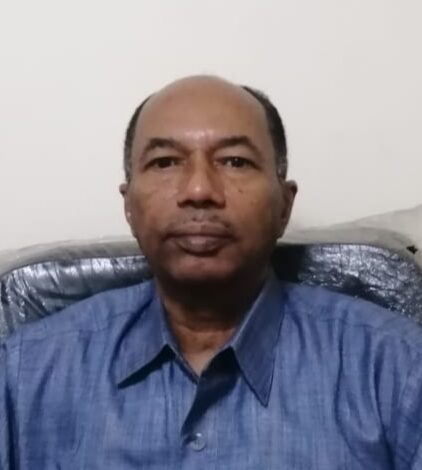Visit of the Russian Central Bank Delegation to Sudan

Dr. Adel Abdel Aziz Al-Faki
adilalfaki@hotmail.com
I hope that Russia will provide a commodity loan to Sudan at this stage, which would include supplying Sudan with its needs of petroleum products, wheat, flour, and fertilizers, with the loan repayment period extending over ten to fifteen years and a grace period of at least two years.
On the occasion of the high-level delegation visit from the Russian Central Bank to Sudan, at the invitation of the Sudanese Central Bank on the 17th and 18th of September, I would like to point out that we currently have a golden opportunity to form a strategic alliance with the Russian Federation. Russia is facing a global war led by the United States, with the participation of European Union countries. Similarly, Sudan is facing a coalition that includes neighboring countries and regional powers aiming to change the identity of the Sudanese state and seize its wealth.
Russia is a member of the Security Council and possesses veto power, which represents a significant political value for Sudan, as it can use this power, in cooperation with Sudan, to achieve the mutual interests of both parties.
Russia has requested Sudan to provide a logistical supply port for its ships in the Red Sea, and Sudan has preliminarily agreed to the request as a sovereign right of the Sudanese state, which has the sole authority to make such a decision. Sudan should seek to maximize its benefits by responding to the Russian request based on a win-win principle that governs relations between countries.
Economically, Russia is a superpower, with a GDP of $4.027 trillion, ranking sixth globally. Sudan has previously signed numerous agreements and memorandums of understanding with Russia, most notably in the field of technology for converting petroleum gases into liquid petroleum products, a unique Russian technology that could be a significant addition to Sudanese petroleum production. There were also agreements in the field of gold and other mineral exploration, as well as an agreement on aerial mapping on land and sea.
The areas of cooperation that could bring significant benefits to Sudan, and which it is advised to develop with the Russian side, include the maximum utilization of advanced Russian military technology, which is of utmost importance to Sudan at this stage.
Another strategically important matter for Sudan is the Russian proposal that Sudan benefit from Russia’s GLONASS technology, used in satellite-based navigation systems (AeroGLONASS). This is intended for establishing a national system for rapid emergency response, command and control systems for the armed forces, police forces, and security agencies, monitoring vehicles, and locating and managing natural resources.
However, what we should focus on at the moment, in my opinion, is trade with Russia. The current volume of trade exchange with Russia does not exceed $110 million per year, while Russian exports abroad amount to $640 billion. Therefore, I hope that Russia will provide a commodity loan to Sudan at this stage, including supplying Sudan with its needs of petroleum products, wheat, flour, and fertilizers, with the loan repayment period extending over ten to fifteen years and a grace period of at least two years. This will contribute to stabilizing the value of the Sudanese currency against foreign currencies, and the local counterpart will lead to an improvement in government revenues, reducing the need for borrowing from the Central Bank. And God is the grantor of success.



